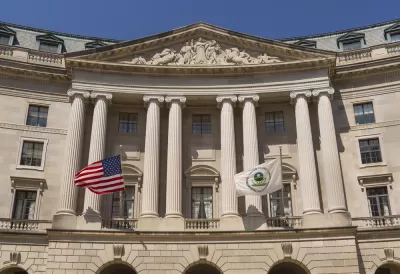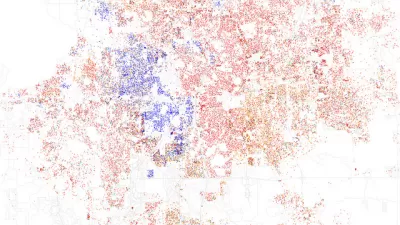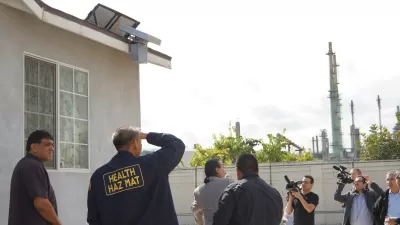A report from the U.S. Environmental Protection Agency's Office of Inspector General calls out state environmental agencies for a lack of civil rights enforecement and makes recommendations for resolving shortcomings.

A new report from the Environmental Protection Agency's (EPA) Office of Inspector General scrutinized the agency's enforcement of Title VI of the 1964 Civil Rights Act and found that the majority of state environmental agencies fail to prevent discrimination, and "the EPA is not fulfilling its obligation to get them in line," reports Naveena Sadasivam.
According to the inspector general's report, 43 state agencies failed to meet at least one of the criteria set forth by the EPA to avert discrimination. "The checklist requires, in part, that funding recipients post nondiscrimination notices in prominent locations in the office, that they provide language assistance services for those with limited proficiency in English, and that they hire a nondiscrimination coordinator," Sadasivam says.
The EPA investigated complaints to be filed as a catalyst to investigate compliance with the nondiscrimination rules rather than proactively confirming that states were adhering to the nondiscrimination criteria checklist.
Last week’s report is hardly the first time that the EPA has come under fire for accepting few civil rights complaints for investigation, spending years — and sometimes decades — resolving them, and almost never making findings of discrimination," writes Sadasivam, noting a 2015 investigation by Center for Public Integrity finding that the EPA dismissed 95% of submitted complaints.
The inspector general's report makes six recommendations to remedy these instances of neglect.
FULL STORY: Report: Environmental agencies are violating civil rights laws — and the EPA is letting them

Alabama: Trump Terminates Settlements for Black Communities Harmed By Raw Sewage
Trump deemed the landmark civil rights agreement “illegal DEI and environmental justice policy.”

Study: Maui’s Plan to Convert Vacation Rentals to Long-Term Housing Could Cause Nearly $1 Billion Economic Loss
The plan would reduce visitor accommodation by 25% resulting in 1,900 jobs lost.

Planetizen Federal Action Tracker
A weekly monitor of how Trump’s orders and actions are impacting planners and planning in America.

Waymo Gets Permission to Map SF’s Market Street
If allowed to operate on the traffic-restricted street, Waymo’s autonomous taxis would have a leg up over ride-hailing competitors — and counter the city’s efforts to grow bike and pedestrian on the thoroughfare.

Parklet Symposium Highlights the Success of Shared Spaces
Parklets got a boost during the Covid-19 pandemic, when the concept was translated to outdoor dining programs that offered restaurants a lifeline during the shutdown.

Federal Homelessness Agency Places Entire Staff on Leave
The U.S. Interagency Council on Homelessness is the only federal agency dedicated to preventing and ending homelessness.
Urban Design for Planners 1: Software Tools
This six-course series explores essential urban design concepts using open source software and equips planners with the tools they need to participate fully in the urban design process.
Planning for Universal Design
Learn the tools for implementing Universal Design in planning regulations.
Caltrans
Smith Gee Studio
Institute for Housing and Urban Development Studies (IHS)
City of Grandview
Harvard GSD Executive Education
Toledo-Lucas County Plan Commissions
Salt Lake City
NYU Wagner Graduate School of Public Service





























